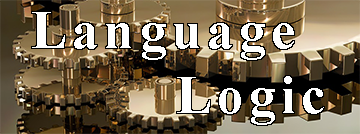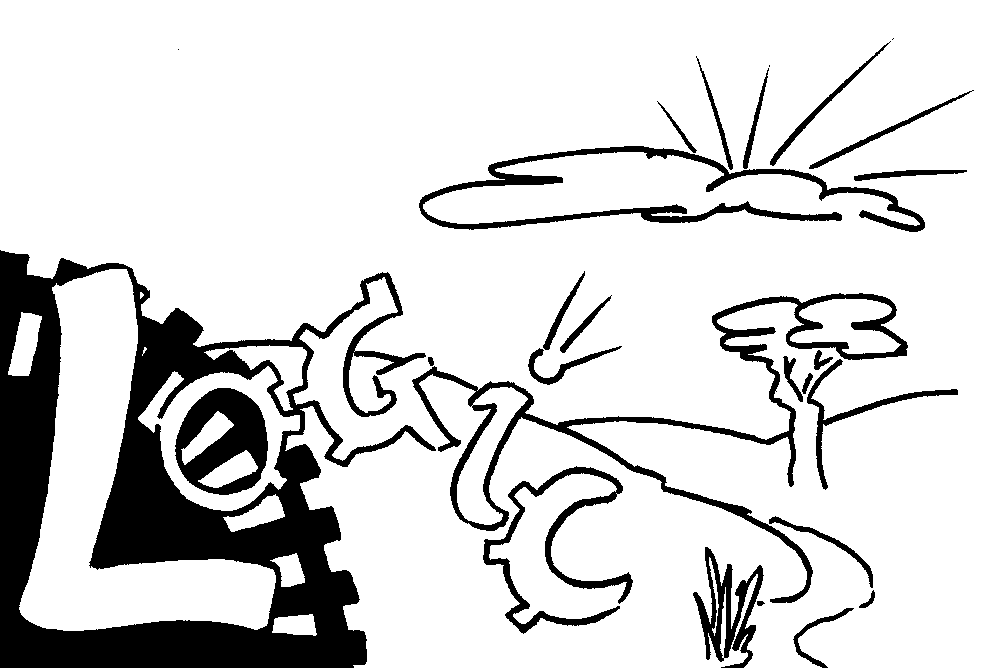



Looking up dictionary definitions of such basic concepts as ‘word’ is invariably frustrating, as you are led on a chain of references that go around in circles. Sometimes however, you accidentally find a definition that makes a cross-connection.
‘Logos’ in ancient Greek meant ‘word, discourse, speech, reason’. Whilst the English term ‘word’ did not derive from the Greek, our term ‘logic’ seems to have done so.


Words are in fact, logical constructions, forgotten metaphors,1* by which we make finite and manageable the ever-changing continuum called human experience.
The innate imagery improves our chances of survival as individuals. However, when taken out of the survival context, the imagery can severely limit our ability to accurately perceive and interact with our environment.2*
We may never be able to free ourselves from these limitations. However, we can minimise their effect by becoming aware of them.
1. Nietzsche, Friedrich 1989 (1874), ‘Lecture Notes on Rhetoric’, Carole Blair's translation in Friedrich Nietzsche on Rhetoric and Language, Sander L. Gilman ed., Oxford University Press, New York.
p.23: ‘... all words are tropes, in themselves, and from the beginning.’ Back
2. Bacon, Francis, 1915 (1605), The Advancement of Learning, J. M. Dent & Sons Ltd, London.
p.24: ‘Here, therefore, is the first distemper of learning, when men study words and not matter; whereof, though I have represented an example of late times, yet it hath been and will be secundum majus et minus [more or less] in all time.’ Back
* * * * *
Limiting Factors of language
| Language (this page) | |
| Basic | |
|
Objectification Linearity Abstraction Subjectivity |
|
| Composite | |
| Location | |